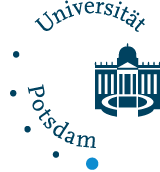Abstract | West African rangelands are invaded by Senna obtusifolia, a non-palatable annual legume. Its invasion has negative ecological and economic impacts in Sahelian countries. However, the reasons for its recent invasion as well as consequences for local ecosystems and livelihoods are poorly understood. |
| Aims: This project aims to identify environmental drivers that promote the expansion of S. obtusifolia, to determine effects of S. obtusifolia invasion on ecosystem functions and services, , and to propose potential solutions and best-practices to control the invasion of S. obtusifolia and its negative impacts on rangelands. | |
| Approach: This project will combine different methods from the natural and social sciences to render an improved scientific knowledge on causes and effects of S. obtusifolia invasion. (a) Field observations: We will collect ecological data along a steep climatic gradient, contrasting sites with various levels of invasion. To assess effects of S. obtusifolia invasion on forage provision, we will apply field spectroscopy. (b) Experiment: A greenhouse experiment will be implemented to elucidate the local adaptation rates of S. obtusifolia. (c) Comparative anthropological approach: Interviews will be used to explore the ecological knowledge of rural populations, related to local management strategies applied to control S. obtusifolia. | |
| Stakeholder integration: A national risk map of S. obtusifolia invasion, technical reports and a manual of best practices to control land invasion by S. obtusifolia will be provided to stakeholders. | |
| Person in charge | Dr. Oumarou Ouédraogo, Laboratory of Plant Biology and Ecology, University of Ouagadougou |
| Persons involved | German Host: Prof. Dr. Anja Linstädter German Postdoctoral Fellow: Jessica Ferner |
| Cooperation Partners | German Mentors African Mentors |
| Runtime | 06/2017 – 06/2020 |
| Funding | Volkswagen Foundation (Knowledge for Tomorrow – Cooperative Research Projects in Sub-Saharan Africa) |

